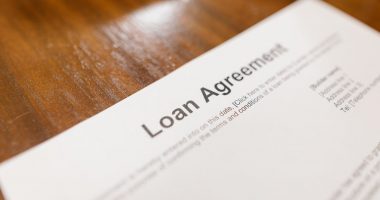As India marks a glorious 75 years of independence on 15th August 2022; it brings in enthusiasm where hope and patriotism are eternal in the heart of every Indian. While we have constitutional freedom it’s time to think about financial freedom.
What does Financial freedom mean? Having enough savings, investments, and cash to afford the lifestyle you want for you and your family; is an important goal for many people. It also means growing a nest egg that allows you to retire or pursue whatever career you want without being driven by the need to earn a certain amount each year.
Unfortunately, too many people are far from achieving financial freedom. Even without the occasional financial crisis; escalating debt from overspending is a constant burden that prevents them from achieving their goals. When a major crisis befalls, it completely disrupts all plans, and more holes in safety nets are exposed.
Here’s a quick financial freedom checklist.
1. Set life goals
What is financial freedom for you? That’s what everyone generally wants, but that’s too vague a goal. You need to be specific about amounts and deadlines. The more specific your goals are, the more likely you are to achieve them.
Write down these three goals: 1) what your lifestyle requires; 2) how much should you have in your bank account to make this possible; and 3) at what age is the deadline for depositing this amount.

Next, count backward from your final age to your current age and set financial milestones at regular intervals between the two dates. Take note of all the amounts and deadlines and put the target sheet in the front of your financial binder.
2. Understand where you’re at
You cannot achieve financial freedom without knowing your starting point. Looking at how much debt you have, how much savings you don’t have, and how much money you need can be a daunting reality. But it’s a valuable step in the right direction.
Make a list of all your debt: mortgages, student loans, car loans, credit cards, and any other debt you’ve accumulated. Don’t forget to include money you’ve borrowed from friends or family members over the years.
Make a list of all your savings: savings accounts, stocks, company share comparison programs, company pension comparison programs, and pension plans. Then we add the recurring monthly payments you receive such as salary, side money, and so on.
3. Make a monthly budget
Creating a monthly household budget – and sticking to it – is the best way to ensure all bills are paid and savings are on track. It’s also a regular routine that will reinforce your goals and encourage determination against the temptation to splurge.
4. Pay off credit cards in full
Credit cards and other high-interest consumer loans are toxic to wealth building. Make sure you pay off the balance in full each month. Student loans, mortgages, and similar loans usually have much lower interest rates; their payment is not an emergency.
However, paying off these lower interest loans on time is still important – and making payments on time will build a good credit rating.
5. Create an emergency fund
As the name “emergency fund” suggests, it’s the money that is kept separately from the monthly budget plan so that individuals can use it in times of unplanned & unexpected financial difficulties and not for meeting their routine expenses.
It is also wise to have an automatic withdrawal to an emergency fund. Keep in mind that the recommended amount to put in an emergency fund depends on your individual circumstances.
6. Start investing now
Bear markets can make people question the wisdom of investing. But historically, there’s no better way to grow your money. The magic of compound interest alone will grow your money exponentially, but you need a lot of time to achieve meaningful growth.

Easily you can start investing with a Demat-less mutual fund account with us. That makes it easy for you to start with risk-based profiling; a goal-based investment portfolio, and make weekly or monthly contributions to it automatically.
7. Identify your needs and wants
Mastering an economical lifestyle means developing a mindset focused on living well with less. In fact, many wealthy individuals developed a habit of living below their means before achieving prosperity.
This is not a call to adopt a minimalist lifestyle. It simply means learning to distinguish between the things you need and the things you want. And then making small adjustments that will yield big gains for your financial health.
8. Take care of your health
The principle of proper maintenance also applies to your body – and taking good care of your physical health has a significant positive impact on your financial health as well.
Investing in good health is not complicated. This means visiting your doctor and dentist regularly and following health advice for any problems you encounter. Many health problems can be helped – or even prevented – by basic lifestyle changes such as more exercise and a healthier diet.
On the other hand, poor health maintenance has both immediate and long-term negative consequences on your financial goals. Obesity and other dietary diseases skyrocket insurance premiums. And poor health can force early retirement with a lower monthly income for the rest of your life.
9. Create additional sources of income
If you are serious about financial freedom, you have to sacrifice some blood, sweat, and tears. Your 9 to 5 might not cut it. If that’s the case, you need to step it up and look for money outside your current job.
You can look at your sources of income in two ways: active income (time to trade for money), passive income (money that can come in even while you sleep).
Some experts recommend having seven streams of income. If you have a 9 to 5 job, congratulations, you have one, only six more to go! And remember: you don’t have to start with seven streams, you can add to them over time.
Bottom Line
Financial freedom can help you take ownership of your finances, and more importantly, your life. It’s about living within your means, being a little economical, and making sure that money is spent on the things you really need, like food, shelter, and even vacations (relaxation is important too, you know).
By following the financial freedom tips in this article, you’ll be one step closer to achieving the financial freedom you deserve. So look at those numbers (finances), build additional income streams, pay off that debt and you’ll be free before you know it.









